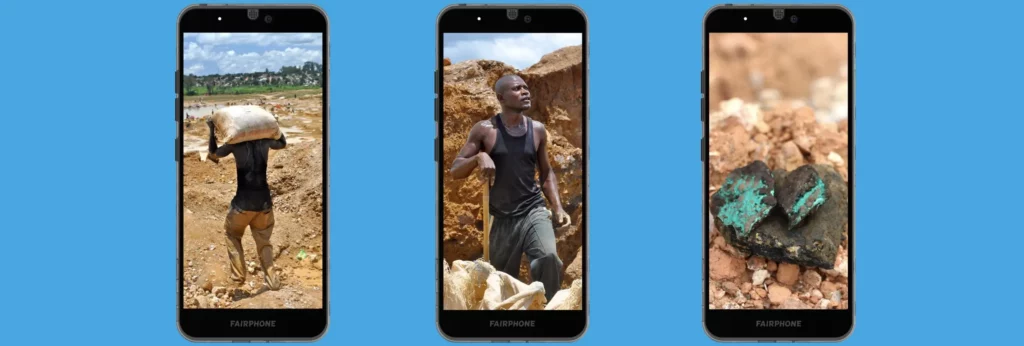
Fair Materials 101 – A guide to the materials in your phone
At Fairphone, we’ve set ourselves some serious challenges: We’re out to change the world. Change doesn’t happen overnight, though – and a lot of the progress happens behind the scenes.
So a big part of this effort is including you in this journey. We’re asking you to look beyond technical specifications, software experiences, and hardware innovation. Let’s stop thinking of innovation as a surface level commitment. For all companies, innovation needs to be more profound; Not token gestures on the outer layer, but a fundamental rewiring of business from the core. In this case, we mean that literally, as the core of smartphone manufacturing lies in its materials and their origins.
Why the materials in your phone matter
Simply put, we care about what we’re putting in our phones – And we think you do too. How your phone is made matters because the materials have both a social and an environmental impact. We want to go straight to the source to make sure we’re creating positive change. That’s why we’re tracking where our phone’s parts come from and creating demand for fairer materials.
We’ve researched the different materials in our products to understand each material supply chain’s social and environmental challenges and base our decisions on where we can make the most significant positive impact. Considering there are more than 40 different materials in a smartphone, each with its own complex supply chain, this is a significant undertaking. But we have to start somewhere, so in 2017 we started researching these materials and began our work on 8 focus materials.
We are continuously challenging ourselves to further our positive impact. So we evaluated our progress and carved out a Fair Materials Sourcing roadmap for the upcoming years.
Introducing our new series: Fair Materials 101
In this new series, we’ll be giving you a no-nonsense, straightforward introduction to everything you need to know about the materials in your phone and their impact. In tackling the issues at the origins of our products we want to challenge the dominant story about what’s right, what’s normal, and what’s possible. And we’re sharing all of it openly with you because we need your support.
After all, this is an enormous and collaborative undertaking. We encourage our peers in the industry to build on what we’ve learned. And we want to support you in understanding the ins and outs of this process so that together we can create a platform for taking action to improve material supply chains.
If you’ve ever wondered what makes Fairphone fair, how recycling plays into the raw materials equation, what on earth the difference between conflict-free and fair minerals is, or if urban mining is what you think it is, you’re in the right place. We’ll be sharing a new article every week.
Fair Materials 101 Chapters
#2 Why we can’t turn our back on mining
#3 How can mining be used for good?
#4 Why recycling isn’t enough
#5 What is urban mining?
#6 Going beyond conflict-free minerals?
#7 Understanding the fair sourcing game
Share this post
The post you are currently reading is an AMP HTML document; an optimized version for mobile usage to increase loading speed and decrease data usage. To see our full website you can visit our own mobile version of this post.